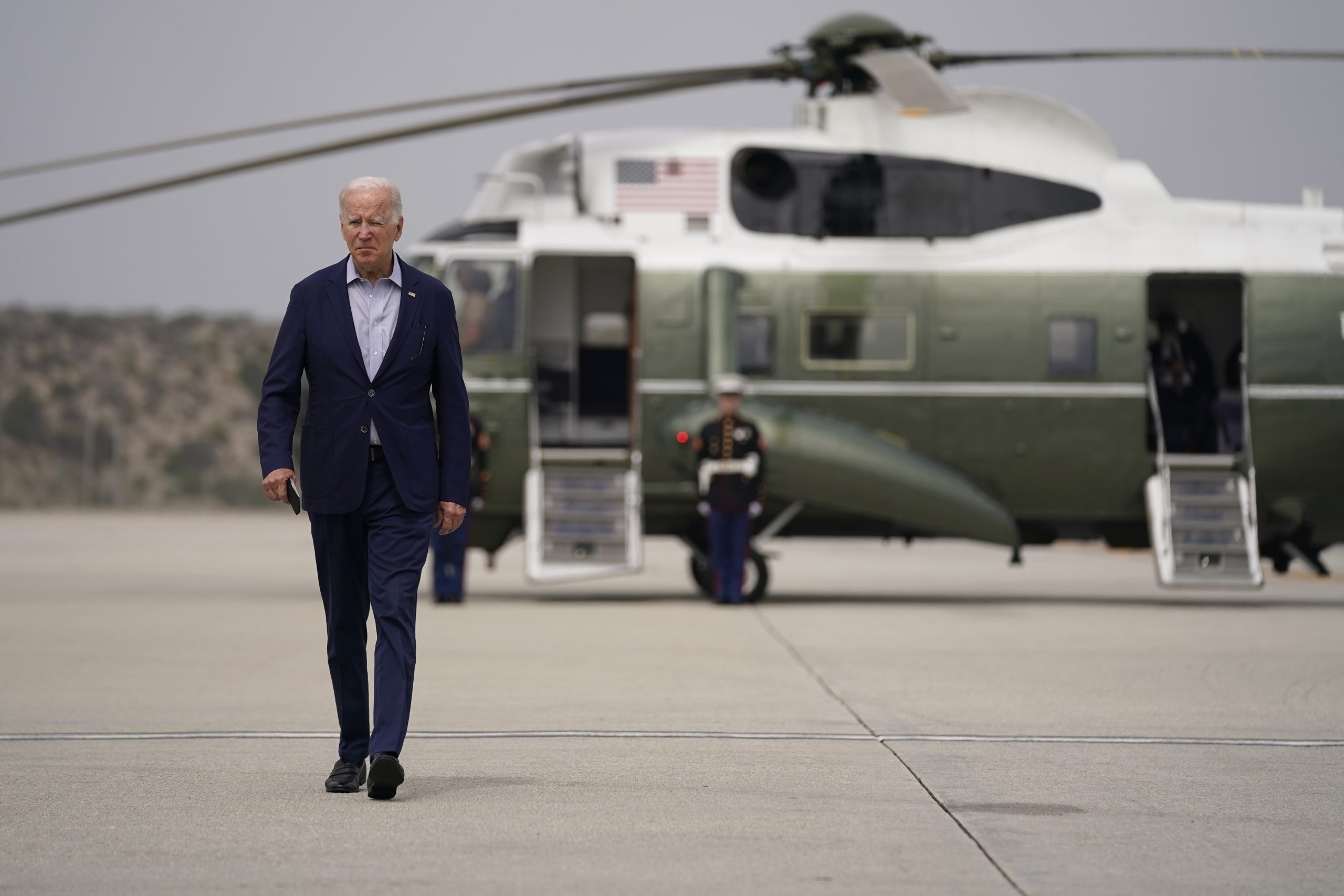When the Taliban recaptured control of Afghanistan before the U.S. military withdrawal was complete, President Joe Biden said no one could have anticipated that the Western-backed government in Kabul would collapse so quickly.
“The intelligence community did not say, back in June or July, that, in fact, this was going to collapse like it did,” Biden told George Stephanopoulos on Good Morning America last year. “Not even close … I don’t think anybody anticipated that.”
A month earlier, Biden had rejected predictions that a Taliban takeover was inevitable. “No, it is not,” he said. Pressed on whether his own intelligence reports had concluded otherwise, Biden replied, “That is not true.”
‘BUT HIS MAR-A-LAGO!’ AND THE REVENGE OF HILLARY CLINTON

But one person had predicted over a decade before ordering the withdrawal of American forces that the Afghan government was not a reliable partner. His name was Joe Biden.
Shortly before being sworn in as vice president in 2009, Biden returned from a trip to meet Hamid Karzai, then Afghanistan’s president, totally disillusioned with the government in Kabul. Sen. Chuck Hagel (R-NE), who would go on to be secretary of defense in that administration, described having to grab a shouting Biden by the arm and trying to calm him down.
Biden had voted for the wars in Afghanistan and Iraq after the 9/11 terrorist attacks. He was the top Democrat on the Senate Foreign Relations Committee at the time.
“But the clash with Karzai and the rest of a discomforting trip left Biden filled with a sense that Afghanistan’s war was ensnaring Washington and could be unwinnable,” Reuters reported. “He returned to Washington with a stern warning to President-elect Barack Obama: Now is not the time to put more troops in Afghanistan.”
“It wasn’t simply impatience,” Jonah Blank, a longtime former Biden aide who accompanied him on the 2009 trip, later told the outlet. “Year after year, his optimism started to drain away.”
“The war in Afghanistan shattered Joe Biden’s faith in American military power” is how the Washington Post put it in 2020.
In his arguments against the Afghan surge that Obama ordered early in his presidency, Biden mainly displayed little faith in Afghanistan’s government and Washington’s ability to transform it into a capable ally.
“As I hear what you’re saying, as I read your report, you’re saying that we have about a year,” Biden said to Gen. Stanley McChrystal, as recounted in Bob Woodward’s 2010 book Obama’s Wars. “And that our success relies upon having a reliable, a strong partner in governance to make this work?” When McChrystal said, “Yes,” Biden turned to the U.S. ambassador to Afghanistan and asked, “In your estimation, can we, can that be achieved in the next year?”
The answer was no, for the reasons Biden suspected: the Afghan government’s corruption.
“I understand the government is a criminal syndicate,” Gen. David Petraeus said. “But we need to help achieve and improve security and, as noted, regain the initiative and turn some recent tactical gains into operational momentum.”
“If the government’s a criminal syndicate a year from now, how will troops make a difference?” Biden shot back. He argued that the government would collapse swiftly without U.S. support. “No one recorded an answer in their notes,” Woodward wrote of Biden’s question.
“I am not sending my boy back there to risk his life on behalf of women’s rights!” Biden shouted at Richard Holbrooke, Obama’s special envoy to Afghanistan and Pakistan. “It just won’t work, that’s not what they’re there for.”
Former Defense Secretary Robert Gates, one of Biden’s Afghanistan interlocutors, described the 46th president as having been wrong on “nearly every major foreign policy and national security issue over the past four decades.”
Biden was right about the Afghan government. It just didn’t matter to his decision-making when it came time to end the nearly 20-year war.
“I made the decision with clear eyes,” he said last year. “I will not send another generation of Americans to war in Afghanistan with no reasonable expectation of achieving a different outcome.”
But Biden also said of Kabul, “The Afghan government and leadership has to come together. They clearly have the capacity to sustain the government in place.”
“It’s not a question of whether they have the capacity,” he continued. “They have the capacity. They have the forces. They have the equipment. The question is: Will they do it?” Despite that caveat, Biden insisted, “There’s not a conclusion that, in fact, they cannot defeat the Taliban.”
Less than two months later, Biden had to conclude otherwise. “The assumption was that more than 300,000 Afghan National Security Forces that we had trained over the past two decades and equipped would be a strong adversary in their civil wars with the Taliban,” he said in his speech concluding the war, conceding, “That assumption — that the Afghan government would be able to hold on for a period of time beyond military drawdown — turned out not to be accurate.”
CLICK HERE TO READ MORE FROM THE WASHINGTON EXAMINER
“The truth is: This did unfold more quickly than we anticipated. So what’s happened? Afghanistan political leaders gave up and fled the country. The Afghan military gave up, sometimes without trying to fight,” Biden said.
Who would have thought? He should have asked Joe Biden.

